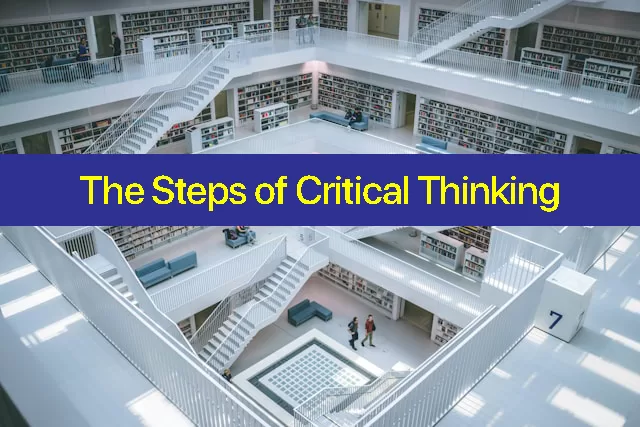Critical thinking involves the capacity to analyze information and arguments with clarity and rationality, enabling individuals to make informed judgments.
It is a skill that can be learned and developed, and it is essential for success in many areas of life, including school, work, and personal relationships.
Table of Contents
There are many different steps involved in critical thinking, but some of the most important include:
- Identify the problem or question. What are you trying to figure out? What is the source of the information?
- Gather information. What evidence is available? Where did it come from? Is it reliable?
- Analyze the information. What are the strengths and weaknesses of the evidence? What are the assumptions underlying the argument?
- Evaluate the argument. Is the argument sound? Are the premises supported by the evidence?
- Form a conclusion. What is the most reasonable conclusion?
- Communicate your conclusion. How will you present your conclusion to others?
These steps are not always linear, and they may need to be repeated as you gather more information and think more deeply about the issue.
However, following these steps can help you to think more critically about information and arguments.
Here are some additional tips for critical thinking:
- Be aware of your own biases. We all have biases, but it is important to be aware of them so that we can avoid letting them cloud our judgment.
- Be open-minded. Be willing to consider different perspectives and to change your mind if the evidence warrants it.
- Ask questions. Don’t be afraid to ask questions about the information you are presented with.
- Be skeptical. Not everything you read or hear is true. Be skeptical of information that seems too good to be true.
- Use your common sense. If something doesn’t seem right, it probably isn’t.
Critical thinking is a skill that can be learned and developed. By following these tips, you can improve your critical thinking skills and become a more effective thinker.
Here are some resources where you can learn more about critical thinking:
- The Critical Thinking Community: https://www.criticalthinking.org/
- The National Council of Teachers of English: https://www.ncte.org/
- The Foundation for Critical Thinking: https://www.criticalthinking.org/
Conclusion
Critical thinking is an essential skill for success in today’s world. By learning to think critically, you can improve your decision-making, problem-solving, and communication skills.
You can also become more aware of your own biases and limitations, which can help you to make better decisions and to communicate more effectively.
So what are you waiting for? Start practicing your critical thinking skills today!


0 Comments